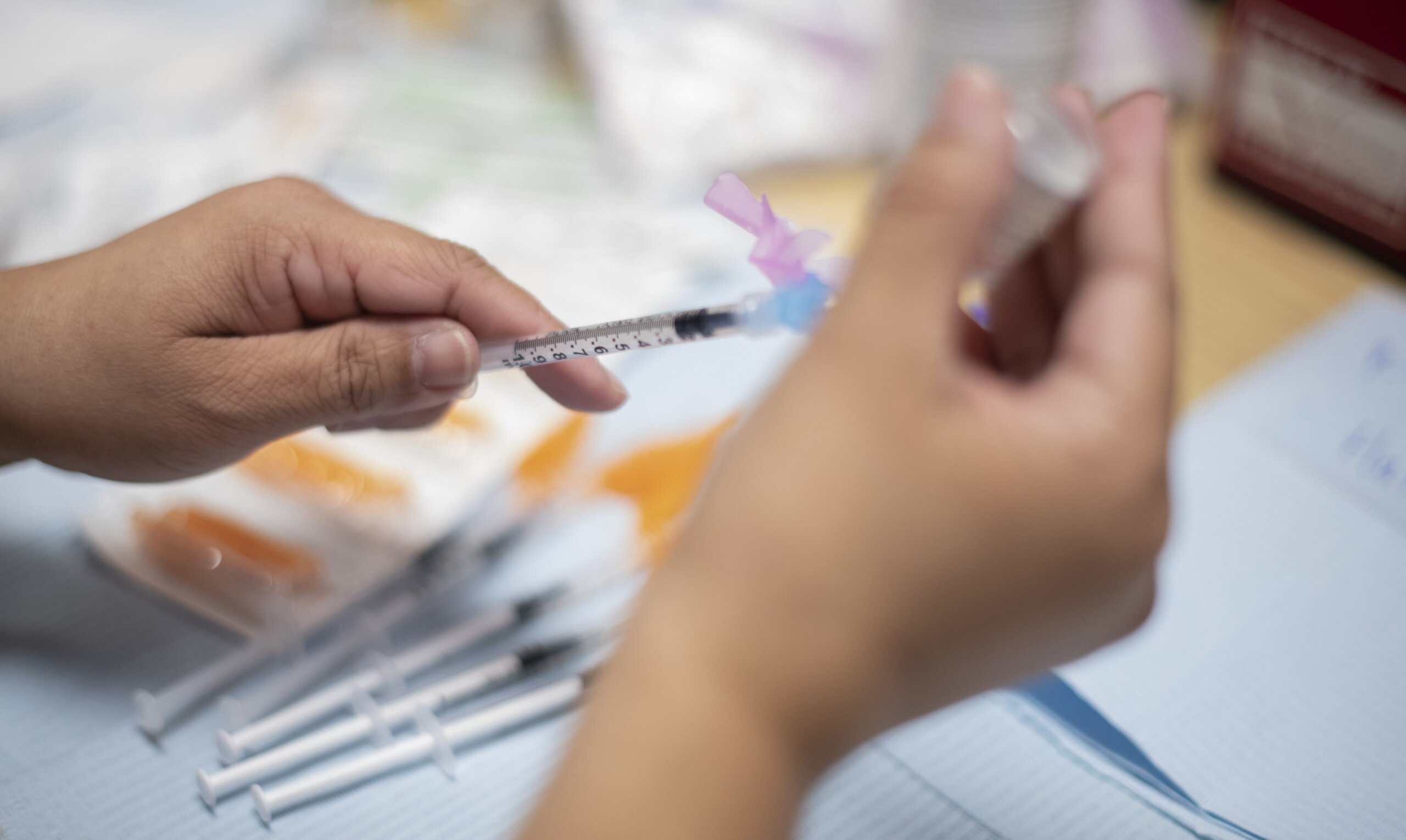The only HIV vaccine currently in late-stage trials has failed. Researchers say it’s a huge setback in the decades-long struggle to control the global spread of the virus.
Researchers announced on Wednesday that the only HIV vaccine trial that was in advanced stages of testing was unsuccessful. The vaccine was known as Mosaico, and the trial was born of a large public- and private-sector partnership that included the U.S. government and Janssen, a division of pharmaceutical company Johnson & Johnson. The trial was conducted by the American National Institute of Allergy and Infectious Diseases (NIAID). Leaders of the study decided to discontinue it after an independent review of the trial’s findings revealed that the vaccine has no effect on participants’ chances of contracting HIV, calling it “safe but ineffective.”
“It’s obviously disappointing,” said Dr. Anthony Fauci, who was the longtime head of NIAID until his retirement in December, according to NBC News. But Fauci added that there are other promising approaches to the HIV vaccine currently in the early stages of their development.
“I don’t think that people should give up on the field of the HIV vaccine,” he said.
The Mosaico vaccine used a common cold virus to deliver what are known as mosaic immunogens, which contain elements from multiple types of HIV, according to the National Institutes of Health. The hope was that they would induce immune responses to a wide variety of global HIV strains through four injections given over the course of a year. The trial involved 3,900 volunteers from Europe, North America and South America who identified as either men who have sex with men, or as trans.
The failure of the Mosaico trial was not totally unexpected. A very similar vaccine, called Imbokodo, was found ineffective in 2021 after a clinical trial involving over 2,500 women in sub-Saharan Africa. The Imbokodo and Mosaico trials cost the NIAID USD $56 million combined, according to NBC News.
Fauci told NBC News that the same critical problem has been tormenting HIV vaccine research for decades: the natural immune response prompted by infection is not sufficient to battle it off. “So vaccines would actually have to do better than natural infection to be effective,” he said. “That would be a very high bar.”
The effort to create a vaccine for HIV has been plagued by failure since it was first announced by the U.S. government in 1984. Since then, only nine clinical trials have made it to advanced stages, according to NBC News. Out of all of those, only one—a study conducted in Thailand and published in 2009—has shown any level of efficacy, and even then not enough to attain regulatory approval.
Fauci told NBC that up-and-coming innovations to the field of HIV vaccine research might hold the key. This includes efforts to use the cutting-edge mRNA technology behind some of the COVID-19 vaccines, which have already begun.
Researchers and advocates are voicing their disappointment at the results of the trial, but not their resignation. “We had hoped that we would see some signal of efficacy from this vaccine,” Dr. Susan Buchbinder, an epidemiologist at the University of California, San Francisco, who co-led the Mosaico trial, told NBC News. While it’s too early to know much about the reasons behind the failure, she says her team will continue analyzing the results in search of information that might be helpful to the development of subsequent vaccines.
Mitchell Warren, the executive director of AVAC, an HIV prevention organization, told the New York Times that the failure of this study is especially disappointing because it was funded by a major company like Johnson & Johnson. “Not that many companies get involved in infectious disease vaccines, so to see this not getting to market is a disappointment and a setback,” he said. However, he hopes the news prompts policy makers and activists to make existing safeguards against HIV more accessible. “It’s not that all hope is lost; it’s that we need to redirect our resources to greatest impact.”
HIV and AIDs prevention remains a major public health issue. UNAIDS, the United Nations’ joint AIDS program, estimates that in the last year, 1.5 million people became newly infected with HIV, and 650,000 people died from AIDS-related illnesses.
While a vaccine remains elusive, the HRC notes that researchers are still closer to eliminating the HIV virus than ever before. HIV tests are faster and more effective than ever before, and pre-exposure antiretroviral medications like PrEP have proven to be very successful in preventing infection. Even when infected, HIV can be successfully treated to the point of eliminating the risk of transmission.
“Fortunately, there are a number of highly effective HIV-prevention interventions already,” Jennifer Kates, the director of global health and HIV policy at Kaiser Family Foundation (KFF), told NBC News. “The challenge is to scale them up to reach all at risk.”


 Why you can trust Xtra
Why you can trust Xtra


